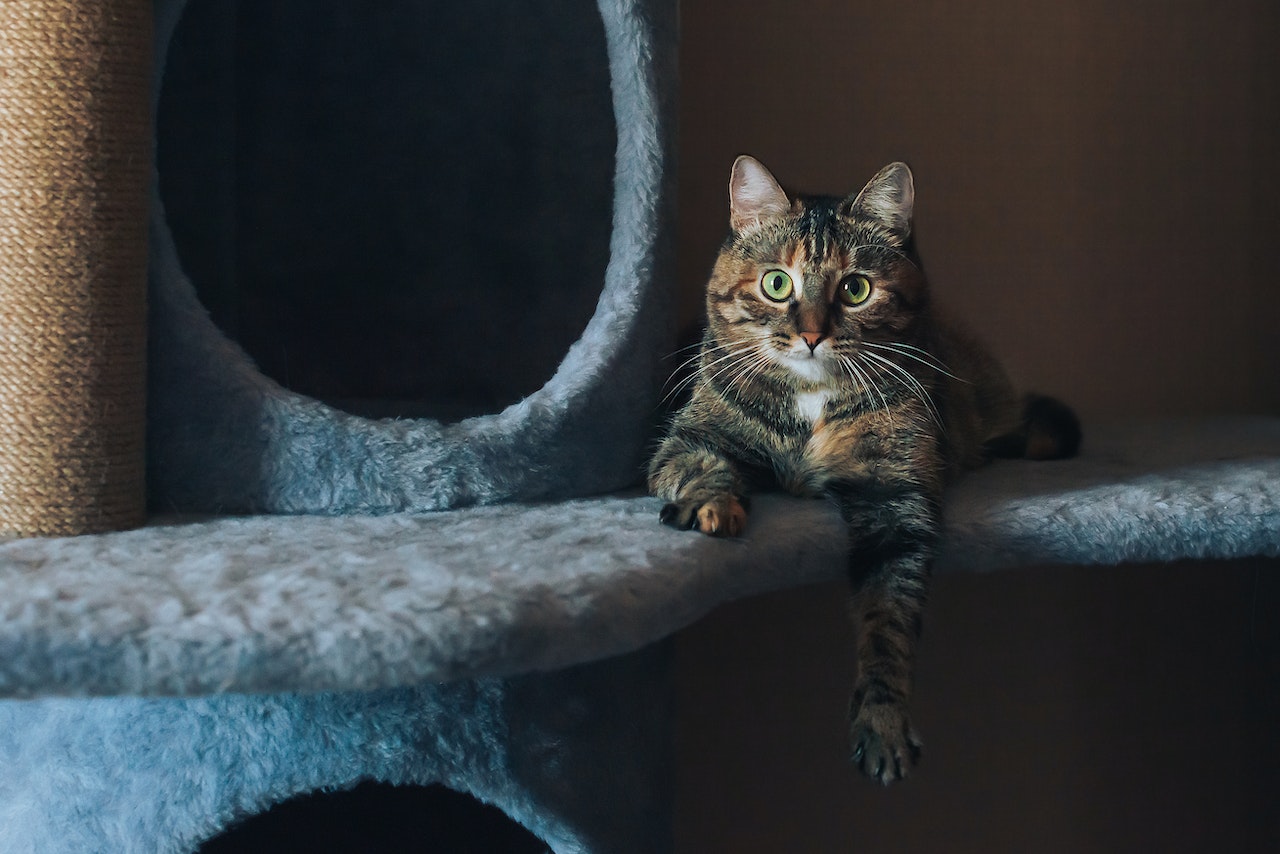The joys of indoor cat ownership come with a lot of responsibility, though. You must ensure your cat is content, comfortable, and secure in your home if you want to keep one. In-home cat ownership information is provided below.

Cats Need Plenty of Space
Indoor cats require a lot of areas to play and move about. To minimize boredom and promote exercise, providing your cat with a stimulating environment is critical. Consider acquiring toys, perches, and scratching posts to provide your cat with various spaces to explore and play.
Proper Nutrition is Key
Cats must eat a diet of animal protein since they are obligate carnivores. To keep your cat healthy and content, make sure they eat a nutritional and well-balanced diet. Speak with your veterinarian to decide on your cat’s proper feeding schedule and nutrition.
Regular Veterinary Check-ups are Essential.
Regular examinations with a veterinarian are required to ensure the health of your indoor cat—plan routine examinations to monitor your cat’s weight, dental condition, and overall well-being. Early detection of health issues helps prevent future, more serious health issues.
Keep Your Cat Safe
Cats kept indoors are less likely to encounter external threats, including predators, vehicles, and bad weather. Yet, it’s crucial to keep your cat secure within your house. Ensure the doors are maintained closed and the windows are tightly closed to prevent escape. To avoid unintentional consumption, keep potentially dangerous materials like chemicals, plants, and small objects out of the way.
Provide Mental Stimulation
Cats require both mental and physical exercise. To reduce boredom and promote natural behaviors, make sure your cat has toys, puzzles, and other forms of mental stimulation.
Maintain Good Hygiene
Although cats are naturally tidy creatures, they require assistance maintaining good hygiene. Regular grooming is necessary to avoid matting, hairballs, and other hygiene-related problems, including brushing and nail cutting.
Litter Box Management
Cats are meticulous creatures and need a spotless litter box to relieve themselves. Ensure the extra-large litter box is kept in a discreet and peaceful location of your home and cleaned every day.
Benefits of Indoor Cats
Longer Lifespan
Indoor cats tend to live longer than outdoor cats because they are not exposed to the dangers of the outdoors. This means they are less likely to get into fights, be hit by cars, or be exposed to other risks.
Reduced Stress
The pressures of the outdoors, including loud noises, changing weather, and other environmental conditions, are not experienced by indoor cats. This can make them feel less stressed and help them live more tranquility.
Better Behavior
Indoor cats are less likely to engage in problem behaviors such as spraying, fighting, and digging. They are also less likely to develop territorial behaviors that can be disruptive to the household.
Tips for Indoor Cat Owners
Provide a Balanced Diet
Healthy indoor cats require a well-balanced and nutrient-rich diet. Speak with your veterinarian to decide on your cat’s proper feeding schedule and nutrition.
Choose the Right Breed
Some cat breeds are better suited to living indoors than others. For example, breeds like the Russian Blue and the British Shorthair are known for their calm and laid-back personalities, making them ideal indoor pets.
Be Patient
Some cats may take longer to adjust to indoor living than others. Be patient and give your cat time to get used to its new surroundings. Provide them with lots of love, attention, and positive reinforcement, and they will soon learn to love their new home.
Keep Your Cat Active
Indoor cats can become lazy and overweight if they don’t get enough exercise. Make sure to play with your cat regularly and provide them with toys and activities that encourage physical activity.
Give Your Cat Lots of Love
Indoor cats thrive on love and attention, so make sure to give your cat plenty of affection and attention. Spend time playing with them, grooming them, and just cuddling with them on the couch.
Conclusion
Taking care of an indoor cat demands commitment and responsibility. You can make sure your cat is happy and healthy by giving it a nutritious diet, lots of room, mental stimulation, and frequent veterinary checkups. To avoid health problems and ensure a long and fulfilling life for your indoor cat, bear in mind to keep it safe and practice excellent hygiene.
